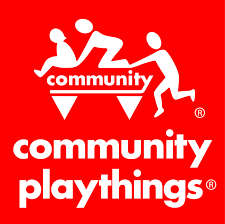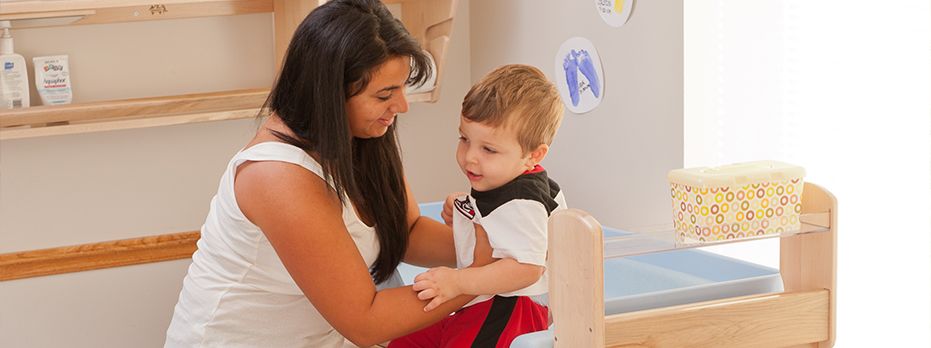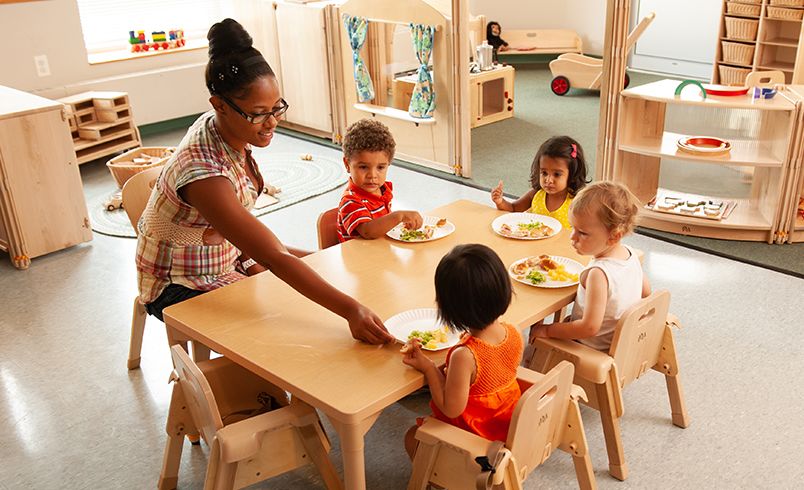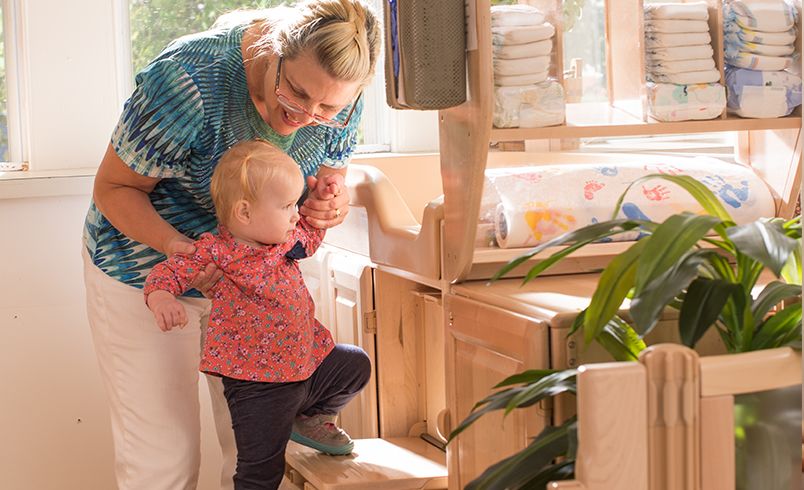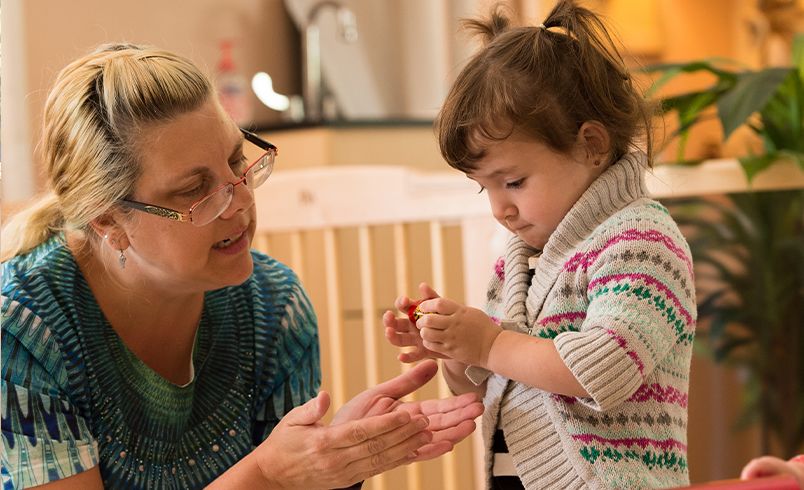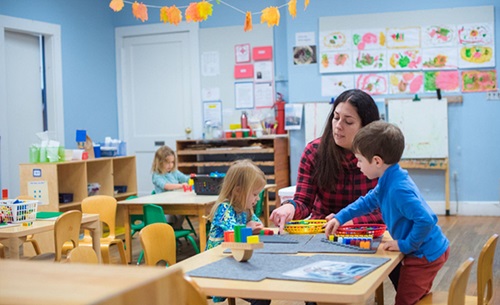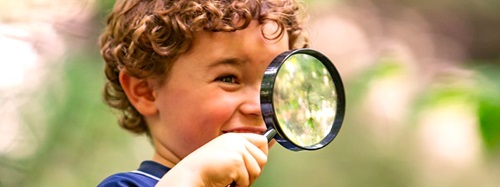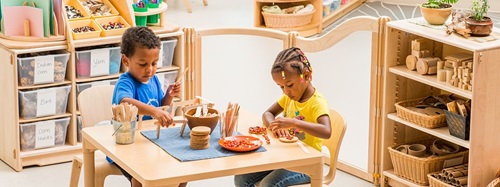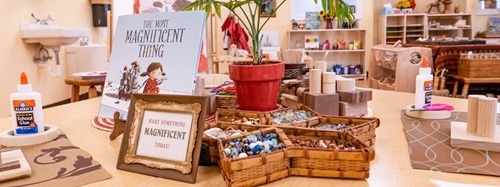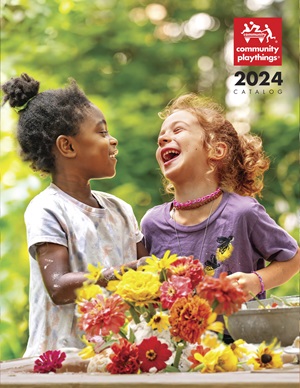Liberating Care
| November 2020As early childhood educators, we are often told not to talk about care when describing our work. Conferences and leadership institutes advise us in using the language of academia to demonstrate how children learn. We use this language to justify and explain our work with young children. The message has been, “Others will think you are just babysitting if you talk about care. Don’t call your school a child care center, rather call it an early learning institute. You are more than care.”
Embedded in this message is the notion that the older the person you teach, the more respect you earn. College professors and high school teachers are really “teaching”, while those that care for babies, toddlers, and young children are at the bottom of the educational hierarchy. We’ve been told to reach up into school curriculums for categories like math, science, and literacy to give child care legitimacy. Even within our own field, we are often forced to use these terms to achieve accreditation and recognition.
When we disguise the care of children with academic categories, we rationalize the following quote from David Hawkins, “Much of our zeal for reform in early education is consistent with the interpretation that we don’t really like children and we want them to grow up as soon as possible” (D Hawkins, The Informed Vision). The language and systems we have been asked to use are not born from within, they are borrowed, and they don’t respect or see truly the unique stage of life called early childhood. They push down, they pressure, they hurry, they confine. They causes us to subjugate childhood, and to place children and their care subordinate to what is thought of as academic learning.
In my career, I have learned to talk the talk. I know how to pin academic standards on just about every aspect of child care and early human development. When I see the three year old sitting at the table eating snack, I can tell you how she is using her proprioceptive intelligence to find her seat, to hold herself in a healthy posture while she also uses both hands to pour her own water, strengthening her attention and her brain development as she crosses midline. I can tell you about the sequencing and the fine motor skills she practices while she uses a small knife to spread humus on her cracker. I can describe the language and vocabulary lessons embedded as she shares conversation with her teachers and peers. Most importantly, I can describe her budding sense of self and the knowledge she gains about her own agency and worth as she builds an intimate relationship with food, growing a self-awareness about her likes and dislikes, and her internal registers for hunger and satiation
I can describe how the lessons learned at snack time are linked to future academic success, but as I do so I wonder, why can’t we appreciate care of children for its own sake? Why does this language feel artificial and contrived? Why must we commodify children for some future goal? Why do we speak a language that is not our own, while simultaneously complaining that the work of early education and care is misunderstood, unappreciated, and nearly invisible?
By not speaking openly and explicitly about care, I believe we are propagating a false dichotomy that education and care are separate. I am no longer willing to rank care, hide care, or disguise care. We need to name care and show that the most basic rituals of care, which society typically thinks of as custodial, are intellectual encounters. Whether serving a meal, changing a diaper, wiping a nose, holding a hand, or helping a child put on his mittens, care requires a special kind of intelligence, insight, dignity, respect, presence, and dialogue. A child is learning about himself and others through care. Care offers the first lessons in empathy, perspective-taking, partnership, and human worth. These are not soft skills. This is knowledge that cannot be categorized, measured, and standardized. Care is the making of humans. Care is the lesson of love, connection, and human dependency deeply embedded in the body and mind of a young child in the present moment. Care is the origin story we all share.
As early childhood educators, we have had a hard time naming what we do because care is so close to us. In a field that is the domain of women, care is undervalued, expected, and assumed. Sometimes it is so familiar to us that it seems simple and obvious, but it is not. Care is complicated, profound, and strong. As teachers of young children we have an incredible opportunity to examine care, describe care, and lift up care as the seed of human growth, development, and self-actualization. Care offers a way of understanding life. Care is an ethical model for relationships, happiness and lifelong learning.
As fellow early childhood teachers, I invite you to be ambassadors of care. Examine how you view care, how you talk about care, how you treat care in your essential work with our youngest citizens. I invite you to reflect upon your own worth as you care. Do you treat some parts of your day, such as story time as more important than other parts of your day, such as rest time and meal time? Do you see yourself as a teacher while you help a children use the toilet, wash their hands or zip up their coat? Do you practice care as an honorable human encounter or as a chore?
Join me in an examination of care as we discover new ways to name the pedagogy and practice of care.
